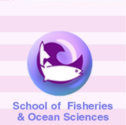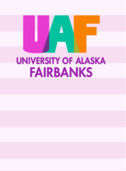




Andrew Matala, Age: 30; Hometown: Bremerton, Washington; Master's degree candidate, Fisheries and Ocean Sciences, class of 2000; Major professor: Dr. Anthony Gharrett
"My thesis research is the analysis of population substructure of commercially important rockfish. I'll use genetic markers called microsatellites as tools toward the characterization of species. Microsatellites are naturally occurring short tandem repeats of sequence in the genome. Distinct species or populations will exhibit unique patterns of these short tandem repeats which can then aid in identifying a member of that group. It's believed that microsatellites have potential above allozymes because DNA tools are more sensitive and improve resolution."Stock structure reflects variation in age composition, growth, fecundity, etc.. Differences in stock structure suggest groups within a species constitute separate distinct populations with distinct gene pools. It is these kinds of things which must be understood in order to manage against overharvest. In regard to acceptable biological catch (ABC), many rockfish are managed as a single species throughout their range in Alaska. Because long-lived species such as rougheye and shortraker rockfish are very sensitive to overharvest and slow to rebuild numbers, this could put distinct populations at risk where disproportionate harvest and small geographical range exist. Little is known about the life history or population structure of rockfish, but genetic analysis (microsatellites) may provide a platform for thorough characterization. Genetic variation will be quantified and its geographical patterns described and promising results have potential value in conducting abundance assessments."
Favorite pastimes or hobbies: "I enjoy home-brewing, cooking, mushroom hunting, bird watching, fly fishing, hiking, hunting, skiing, watching baseball, and playing softball. I also like to read American history and other nonfiction."
Most interesting educational experience: "During my research and while helping in other fishery projects, I got to fly around Southeast Alaska and I saw some beautiful country. Also, I enjoyed my bacteriology studies in my undergraduate studies."
Why did you choose UAF ? "I heard good things about my professor, Dr. Tony Gharrett, from faculty at the University of Washington, and I've always wanted to see Alaska."
Future Plans: "After graduation, I hope to move back to Washington state and use what I've learned to aid in rehabilitating salmon populations much in need of help. I'm also entertaining the idea of further education in fish pathology. I just want a meaningful fisheries position that allows me to give back to a resource I've enjoyed aesthetically and as a sport while growing up in Washington."
Search Alaska Sea Grant | Alaska Sea Grant Homepage